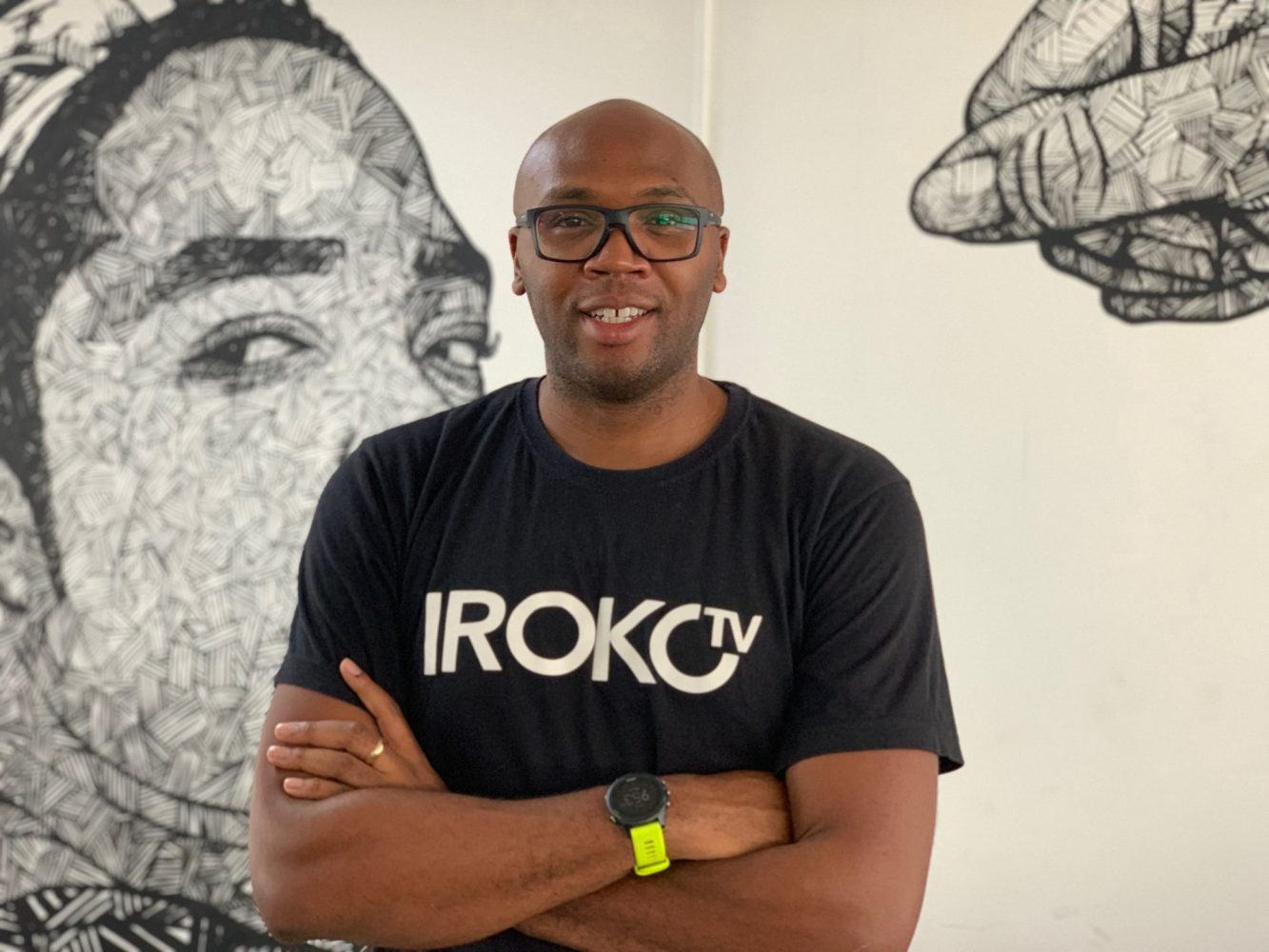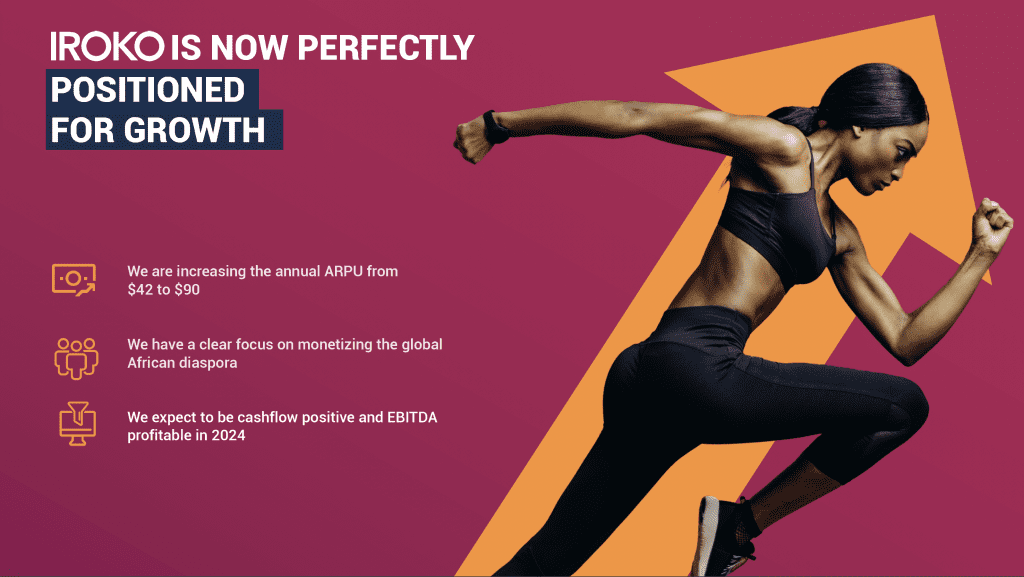Africa’s Homegrown SVOD Pioneer Plots Survival In Choppy Waters

Africa’s home-grown movie streaming pioneer iROKOtv is alive and surviving having faced some turbulence, its Founder/CEO Jason Njoku maintains, addressing reports that have emerged in recent weeks suggesting the company is spiralling amid mounting struggles.
In a recent post on his blog where Njoku is known to periodically chronicle details of the journey of building Africa’s first indigenous Subscription Video on Demand (SVOD) platform, as well as insights about the African tech startup ecosystem, the iROKOtv CEO revealed the company’s arduous journey through debt restructuring, cost reductions, and a three-year turnaround. Despite facing significant challenges, Njoku expressed a resolve to key into resilience, determination, and adaptability.
iROKOtv, a web platform that provides free and paid-for African films on-demand, launched over a decade ago and is considered the largest, legal online distributor of Nollywood films, with a library of more than 5,000 movies. In 2019, the platform generated USD 8.9 M in profits, according to the CEO, marking a period of impressive performance that would be truncated when the pandemic struck. But recent reports alluding to stalled growth, a declining customer base, content problems, a withdrawn marketing budget, and technology hiccups–or at least the way the issues have been framed–are wide off the mark, Njoku writes.
“There was mention of USD 300 K/month in expenses,” Njoku writes, alluding to a TechCabal report. “That’s accurate. But Iroko has NEVER spent more than 11 percent of revenues on marketing. Ever. That’s never been our thing. Organic and retention have always driven our long-term unit economics. Still, despite minimal paid customer marketing investment in 2023, we kept the teams employed and refocused on retention marketing (we have 1m+ customer emails and phone numbers),” he reiterates.
Njoku’s journey with IROKOtv has been far from smooth. The company, once buoyed by its successful ROK subsidiary which it incubated and subsequently exited to Canal+ Vivendi for for USD 25 M in 2019, faced daunting challenges in the Nigerian market, including COVID-19 disruptions, Naira devaluations, and unsustainable cost structures.

Nevertheless, iROKOtv’s financial trajectory reveals a rollercoaster ride from substantial losses to a more sustainable outlook, per Njoku’s submission. Between 2015 and 2020, the company incurred losses amounting to a staggering USD 30 M in the Nigerian market. However, 2023 paints a different picture, with anticipated losses reducing substantially to approximately -USD 500 K, down from ~USD 4.9 M in 2020. This marked improvement underscores the effectiveness of IROKOtv’s strategic manoeuvres and cost-cutting initiatives which have included layoffs and closing offices.
“Where possible, I tried to avoid layoffs. Naturally, firing folks sucks, especially in this crazy Nigerian macroeconomic climate. So if there is a possibility of holding teams together, even if it’s based purely on hope, then I would fund the difference myself,” Njoku writes, revealing that the iROKOtv team had to be whittled down to 51 from 642, and the company is now a fully remote one having moved out of offices in Lagos, London, Accra and New York. Overall costs have been reduced by 80 percent as a result, the CEO says.
Njoku acknowledged the challenges and shared his efforts to steer the company through these troubled waters. He reacquired majority ownership of iROKOtv in 2022, injecting personal funds to keep the business afloat. Despite substantial losses, Njoku expressed determination to turn the company around, emphasizing the importance of responsible financial management.
Njoku outlined a strategic shift toward international markets, especially targeting the African diaspora in North America and Western Europe, pulling out of servicing viewers in Africa where the appetite for video streaming is growing but local services are struggling. Streaming platforms owned by local telecommunications companies struggle to compete with international players like Netflix and Prime Video, Rest of World reports, and at least four telecom companies have shut down their streaming platforms in the last year. The struggles in making the numbers work in the continent’s challenging markets and shortcomings on the content side are seen as the main obstacles.
iROKOtv, now with its eye on the diaspora, increased its subscription prices by 100 percent last month (to USD 9.99 per month) to improve average revenue per user (ARPU) and achieve sustainability. This move aligns with the global trend of streaming services adjusting pricing to balance profitability and content costs.
By pivoting towards international markets where a staggering 89 percent of its 2023 revenues have been derived; a strategy that was adopted fully amid economic headwinds in the middle of the pandemic, iROKOtv sought to diversify its revenue streams and mitigate risks associated with volatile local market conditions.

The decision to increase subscription prices by 100 percent internationally, targeting an annual Average Revenue Per User (ARPU) of USD 90.00 to USD 100.00 is a move that emphasized the company’s commitment to sustainability over rapid expansion.
One of the pivotal changes IROKOtv implemented was a temporary pause in new content releases. This decision aimed to address a discovery problem, Njoku shares, allowing customers to explore the extensive library of existing content while being financially reasonable for the company as it completed a platform migration. Additionally, the company aimed to improve user experience by developing a Smart TV app, a project that faced complexities but demonstrated IROKOtv’s dedication to enhancing its service.
In the face of criticism, Njoku remains open about IROKOtv’s challenges and successes, While challenges persist, the company’s ability to adapt, innovate, and maintain financial discipline has come to the fore.
iROKOtv’s journey over the past few years has been marked by highs and lows, showcasing the difficulties faced by independent streaming platforms in a competitive market. The company’s strategic decisions, challenges, and efforts to adapt to evolving market dynamics reflect the complex nature of the streaming industry. As iROKOtv continues its struggle for survival, its ability to overcome these obstacles will depend on its adaptability, financial prudence, and resilience in navigating the complexities of the business landscape.